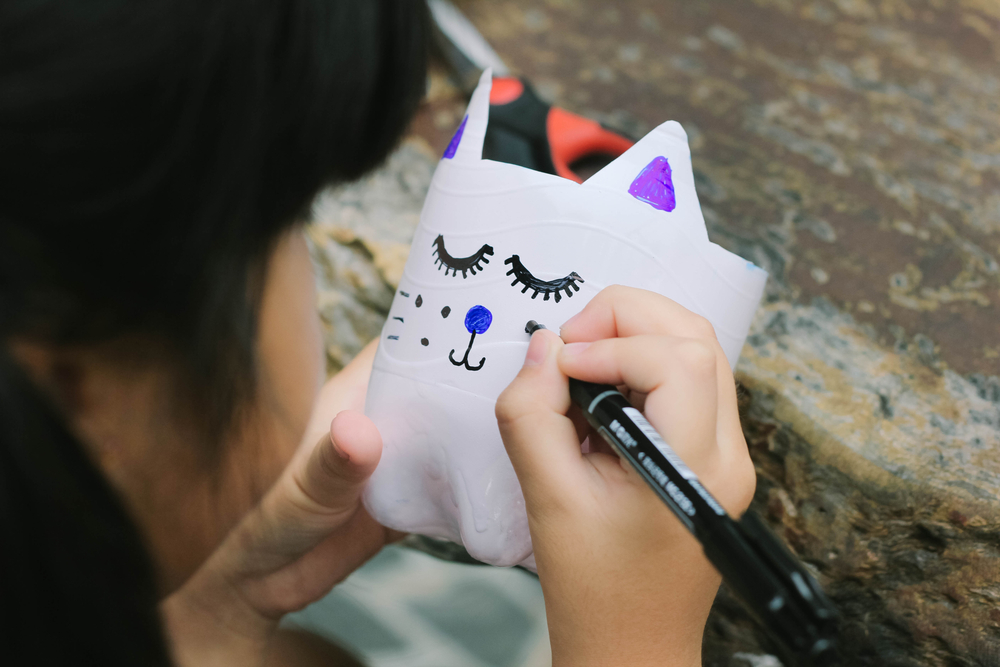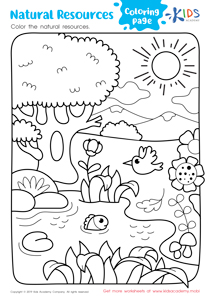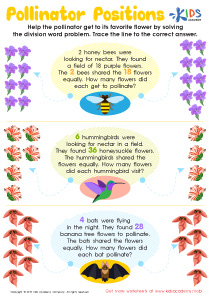Normal Mazes worksheets activities for Preschool
2 filtered results
-
From - To
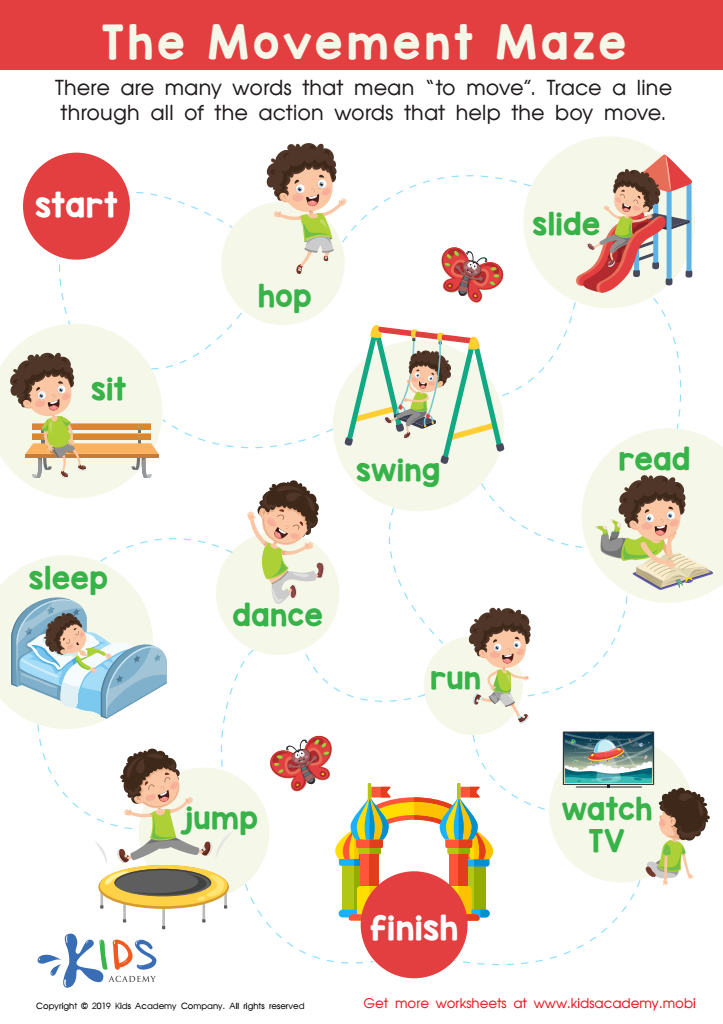

The Movement Maze Worksheet
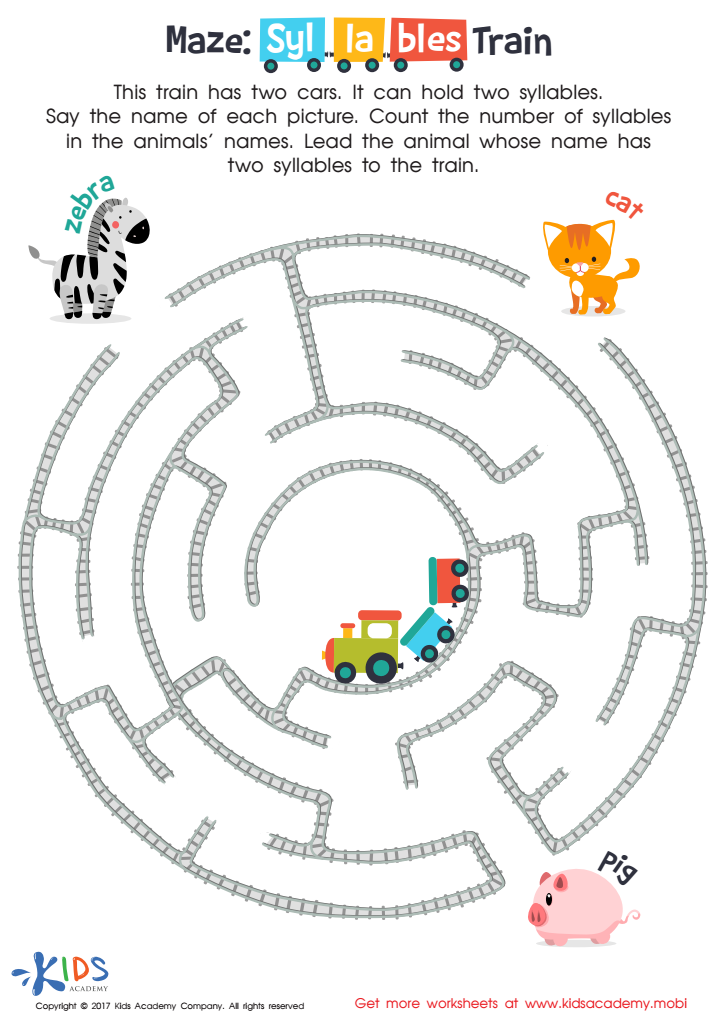

Maze Syllables Word Structure Worksheet
Normal Mazes worksheets activities for Preschool are an invaluable part of early childhood education, offering a unique blend of fun and learning that is critical for young learners. These activities are specifically designed with preschool-aged children in mind, making them an ideal tool for educators and parents alike to engage little ones in educational play.
First and foremost, Normal Mazes worksheets activities for Preschool help to develop fine motor skills. As children navigate their way through the twists and turns of a maze, they must carefully control their pencil or crayon. This action not only strengthens their hand-eye coordination but also prepares them for writing and other activities that require precise movements.
Moreover, these worksheets serve as an excellent way to enhance problem-solving skills. Mazes challenge children to think ahead and plan their route to successfully reach the end. This kind of strategic thinking is foundational in developing critical thinking and reasoning skills, which are essential for academic success and everyday decision-making.
In addition to fostering cognitive development, Normal Mazes worksheets activities also nurture patience and perseverance in preschoolers. Completing a maze requires focus and determination, teaching children the value of working toward a goal and the satisfaction of achieving it. This can be an important lesson in resilience, a quality that will benefit them throughout their lives.
Furthermore, these activities can be a source of emotional and social growth. Working on mazes in a classroom setting encourages teamwork and communication among peers, as children often love to help each other solve puzzles. This collaborative environment promotes empathy, cooperation, and the sharing of strategies and successes.
Finally, Normal Mazes worksheets activities for Preschool are incredibly versatile and can be tailored to various themes and skill levels, keeping the learning experience fresh and exciting. Whether it's a simple maze for beginners or a more complex puzzle for those ready for a greater challenge, there's a maze for every learner.
In summary, integrating Normal Mazes worksheets activities into preschool education offers a multifaceted approach to learning that is both enjoyable and effective. It touches on crucial developmental areas, including fine motor skills, problem-solving abilities, patience, and social skills, making it a fundamental tool in early childhood education.

 Assign to the classroom
Assign to the classroom

